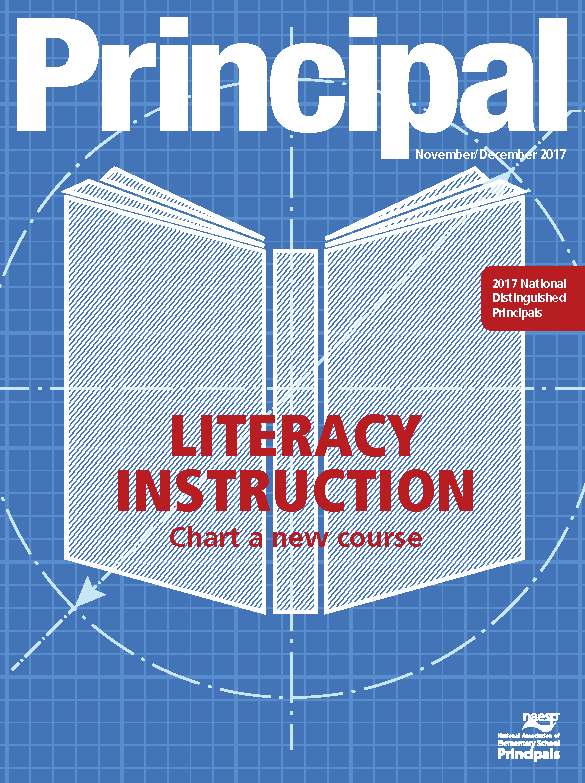Be a Champion for Literacy
Your actions today will help your students go for gold.
By L. Earl Franks, Ed.D., CAE
Communicator
December 2017, Volume 41, Issue 4

The National Association of Elementary School Principals believes that education must assist each child to realize his or her potential as a functioning and contributing member of society. Furthermore, the Association believes that each child should have an equal opportunity to attain self-realization. In order for these beliefs to become reality, literacy must be at the forefront of every child’s educational journey.
The research related to educational success is clear: A student must be proficient in reading by third grade to be academically successful. For this to occur, it is imperative that school leaders have the knowledge and skills necessary to evaluate literacy instruction, provide effective feedback to teachers, select a good literacy program, and create a culture of literacy in their schools.
It Takes A Team
School administrators are not the only adults in the building who need the appropriate knowledge and skills related to literacy instruction. In fact, core subject teachers have the most integral role in literacy instruction, so they must be equipped to teach and reinforce the literacy skills required for their specific disciplines.
In addition to addressing literacy in the core academic subjects of English/language arts, math, science, and social studies, literacy must be reinforced in all subjects, including the fine arts, physical education, technology, engineering, foreign languages, computer science, career and technical education (CTE), and health. Ultimately, teaching literacy is the responsibility of every adult in the school building.
Additionally, school leaders should provide the professional learning opportunities needed to adequately prepare teachers to instruct and assist students to have successful reading experiences in all content areas. Principals also must be prepared to offer actionable feedback to support literacy instruction.
Fire Up!

For strategies on literacy instruction, read the latest issue of Principal magazine.
Another crucial ingredient to ensure literacy success is student engagement. As the lead learners in the school, the principal and leadership team should provide special opportunities to get students excited about reading. Specifically, school principals and administrative teams should lead teachers in literacy efforts that help students access, comprehend, evaluate, and create information.
Any high-quality literacy program should be based on the latest research. Principals should collaborate with their instructional teams and familiarize themselves with the best research-based strategies for vocabulary expansion, reading comprehension, bridging the achievement gap, and teaching reading to English-language learner students.
The final, and probably most important, piece is to create a culture of literacy within the school and community. This component must include all stakeholder groups, such as parents or guardians, business leaders, religious organizations, local governmental agencies, local libraries, civic clubs, etc., to collectively establish and support strategies that create and ignite enthusiasm for reading.
Being a champion for literacy will help ensure that all children will have an opportunity to achieve their full potential.
L. Earl Franks is Executive Director of NAESP.
—
Copyright © 2017. National Association of Elementary School Principals. No part of the articles in NAESP magazines, newsletters, or website may be reproduced in any medium without the permission of the National Association of Elementary School Principals. For more information, view NAESP’s reprint policy.


